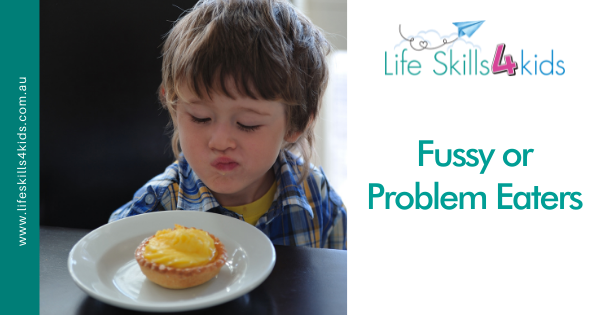Fussy or Problem Eaters? Can you relate with your children?
Words By Deb Hopper
Published in The Great Health Guide
Fussy eating is a phase of development that most families contend with to some extent. Fussy eating is very common in pre-schoolers as they are encouraged to eat a wider range of foods but they are also at the developmental stage where they are learning about independence and experimenting with saying ‘no’.
However, many babies struggle when transitioning from breast or bottle to solids and this fussiness continues throughout preschool and into the school years.
When should fussy eating become a concern for parents? When would a child be categorised as a “problem eater”?
There has been a lot of research on this topic and the points below can serve as a guide to when to when to
get help.
- A child eats fewer than 15-20 different foods or less.
- A parent mentions to a professional at 2 or more regular health checks (12 months, 18 months, 2-year health check) that their child is having difficulties with eating.
- They refuse to eat from one or more food groups.
- They refuse one or more texture type.
- They regularly have tantrums and meltdowns at meal times.
Why are kid’s fussy eaters?
There are many reasons why children struggle with fussy or problem eating.
- Mouth and chewing movements which are poorly developed. Lots of children, even older children, struggle with co-ordination of the mouth, teeth, tongue or their swallowing skills.
- Sensory processing. Many children physically can’t cope with the texture, taste, look or smell of food. Often they also don’t have the balance or postural strength required to be able to sit up easily to eat, or they may tire quickly.
- Psychological stress. Some children develop very real stress responses to being with food. Watch for warning signs of them being distressed around food or moving their body away from food.
Tips for managing fussy eaters.
The wide array of reasons listed above illustrate why it is important to understand first what is the underlying cause of the fussy eating. Once you know, then you can really pin point how to help.
However, here are a few guidelines to point you in the right direction.
- Make sure that your child is well supported when they are seated to eat. Make sure that their feet are resting on something secure, whether it’s a highchair foot rest, a box, or a stool. This is really important.
- Make sure that their hips and knees are at 90 degrees, with feet sitting on something secure. This helps with children who have difficulty maintaining good posture.
- Use a plain plate. Often parents buy a plate with their child’s favourite cartoon. Sometimes this works. But if your child is over sensitive to the visual look of food then this needs to be simplified. Choose a plain white or other coloured plate with no pattern or cartoon.
- Encourage your child to serve themselves. Every small interaction with food is important.
For more great tips for helping fussy or problem eaters to eat, download our free tip sheet.
Kids today are growing up in a fast-paced world where information and opportunity overload can be overwhelming.
Based on many years of clinical experience as an Occupational Therapist, Deb Hopper has been using her Just Right Kids® Model to teach children to communicate and manage their stress and anxiety by:
- Identifying their “body speed”,
- Understanding their stress triggers, and
- Implementing simple strategies to reduce anxiety and stress.

To check out other great articles download your free copy of Great Health Guide today at

- CLICK icon above
- DOWNLOAD PressReader App
- SEARCH Great Health Guide
Deb Hopper is an Amazon #1 Best Seller author for her book Reducing Meltdowns and Improving Concentration: The Just Right Kids Technique and Special Needs Reporter for Toddlers to Teens TV. She is passionate about helping children achieve their potential. A practicing Occupational Therapist at Life Skills 4 Kids on the NSW Mid North Coast, Australia, she understands the day to day struggles that children, parents and teachers face.
Deb Hopper is an Amazon #1 Best Seller author. She is a practicing Occupational Therapist at Life Skills 4 Kids on the NSW Mid North Coast, Australia, she understands the day to day struggles that children, parents and teachers face.



Trackbacks/Pingbacks